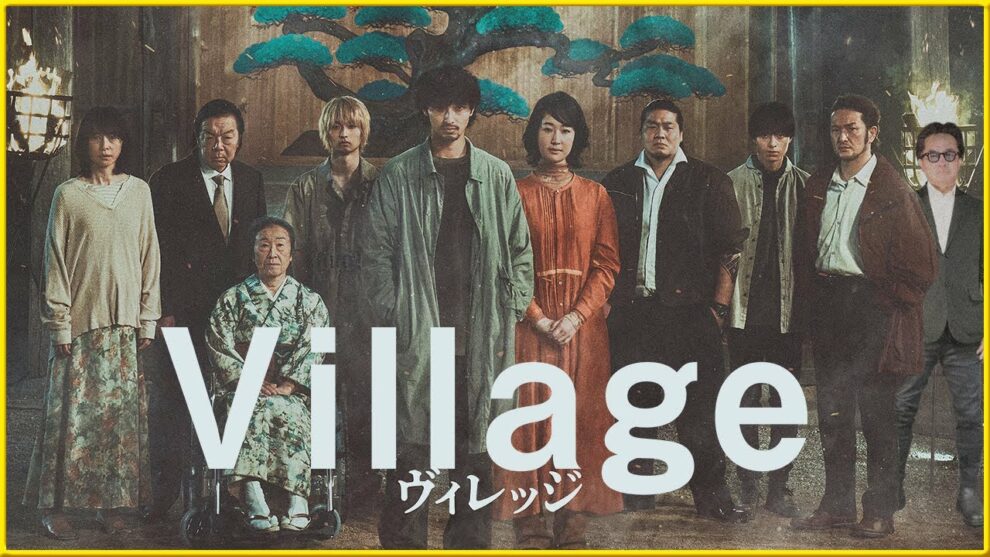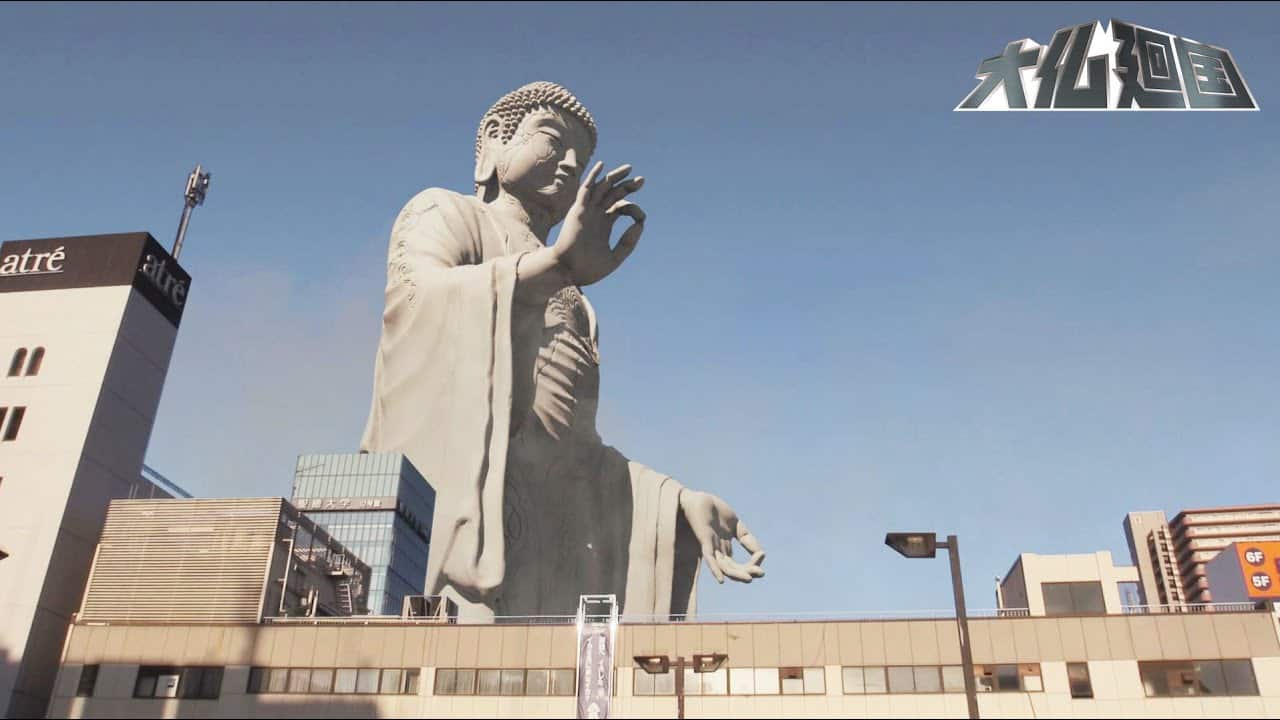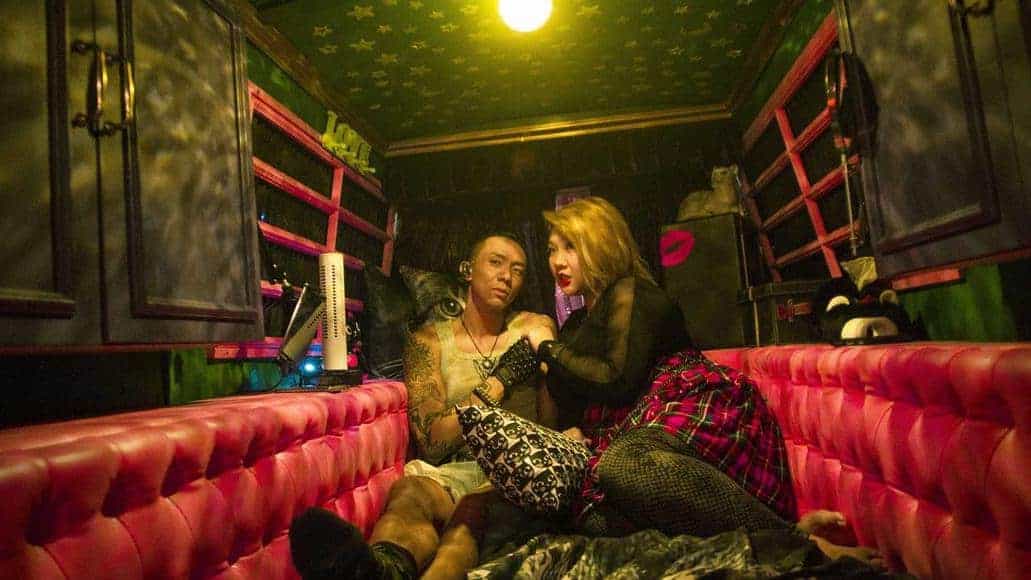Michihito Fujii has emerged during the recent years as one of the most intriguing voices of Japanese cinema, with movies like “The Journalist”, “Yakuza and the Family” and “Day and Night” setting the tone for an impressive career. In the last few years, he seems to have been employed by Netflix in some way, since a number of his latest works premiere on the streaming platform. Not holding “Ghost in the Shell: SAC_2045 – Sustainable War” against him, since everyone who has dealt with that mess has left severely “scarred”, it was really interesting to see what his latest work, “Village” would be like, particularly since it seemed to incorporate a number of the genre elements he implemented excellently in his previous works.
Click the image below to follow our Tribute to Netflix

Yu Katayama is a young man who has been living in the Kamon village since childhood, not being able to leave, despite the fact that his father was part of a horrible incident some years before the story of the movie begins. The main reason for this is due to his mother, Kimie, whose pachinko addiction has led to a significant debt to a local yakuza, Masaru, with Yu feeling he cannot leave her to her fate and leave. To make a living himself and pay her debts, he works at a local recycling plant that supplies a massive landfill, with him being part of the shady disposal that takes place during the nights. Furthermore, he is constantly bullied by Toru, the hulking son of Shusaku, the owner of the plant, who himself, though, seems to face some issues with his sick mother, Fumi, who emits a rather imposing and occasionally terrifying presence over the whole village, despite her state and lack of talking.
In the past, the village had been known for its Noh theater productions, but now the whole concept has been abandoned. The situation changes when Shusaku's brother, Kokichi, a famous Noh actor returns to the village, although the true catalyst for the fate of everyone is another individual who reappears. Misaki Nakai, who left Kamon for Tokyo some years ago, returns to take over PR for the plant, and immediately shows her support for Yu, who finally finds an ally among the inhabitants of the village. Their relationship soon grows, as much as Yu's place in the company, with both events enraging Toru, who eventually decides to act. The events that follow provide the dichotomy for what is essentially the second part of the movie.
Check also this interview
Just by noticing the number of characters mentioned and the many levels and episodes the story includes, it becomes evident that this is a script that was better suited for a series than a movie (something that will probably happen as it did with “Journalist”, “The Forest of Love” etc). As such, it quickly becomes evident that there are too many of both for a single movie, in a choice that essentially strips the impact many of which could have, since it also becomes evident that individually, the episodes are quite interesting both in context and presentation. Granted, the bullying one is essentially a rip off from Tetsuya Mariko's “Miyamoto” (even including the same villain in the once more impressive Wataru Ichinose), but the rest are all original and quite interesting, as much as the comments deriving from them.
The most evident one is how parents' actions torment their children, with You in particular carrying two burdens due to his father and mother's actions, which is essentially what has ruined his life, not letting him leave the village. At the same time, the comment extends to the past, with Fujii, in a rather pessimistic note, stating that escaping it is inevitable, particularly when it involves evil deeds. One could say that the whole garbage disposal concept and the fire from the past are there just to stress this comment, with Fujii stating, through metaphor, that you can bury or burn your past, but you can never escape it.
The second central comment, which is also connected with the two aforementioned, revolves around living in small, secluded places, where forgetting and forgiving is occasionally as difficult as escaping, with Fujii presenting the setting frequently as a prison. Tomoyuki Kawakami's cinematography, with its bleak colors, lack of lighting, particularly in the first part, and the highlighting of the narrowness of the place through his framing, helps the most in that regard, creating a truly suffocating location. A more minor comment concerns how the yakuza operate these days, by providing personnel for shady business such as the one featuring here, and as “loan sharks”. Lastly, an environmental comment also appears through the concept of the landfill, and how people can manipulate the truth through the press and PR in general.
The combination of all the above results in a film that is both a drama and crime thriller, but, as we mentioned before, the movie follows too many paths for one title, with the majority of them not being explored properly. The relatively fast pace, as dictated by the editing, helps somewhat in fitting everything in the 120 minutes of the duration, but in the end, is not enough, with the jumps in the story and particularly the one after the fateful night, not helping at all.
It is also this jump that hampers the performance of Ryusei Yokomaha as Yu, whose transformation, although convincingly presented, is not particularly justified. His effort, though, is impressive, particularly in the first part, with his beaten dog mentality being impressive to watch, as much as its release, in the sole erotic scene of the movie. Haru Kuroki as Misaki is also convincing, even in the way she pursues You, while others, like Arata Furuta as Shusaku, Shido Nakamura as Kokichi, and Tetta Sugimoto as Masaru, do their best, but would definitely benefit from some more screen time. Hana Kino as Fumi steals the show on occasion, with her terrifyingly ominous looks.
“Village” is not a bad movie, and the fact is that no one will probably get tired watching it, also because it is particularly well-shot and acted. However, it is quite evident that the story would be more suited to a (mini series), something that weighs heavily on the end product, placing it in a level much lower that Fujii's previous works.















